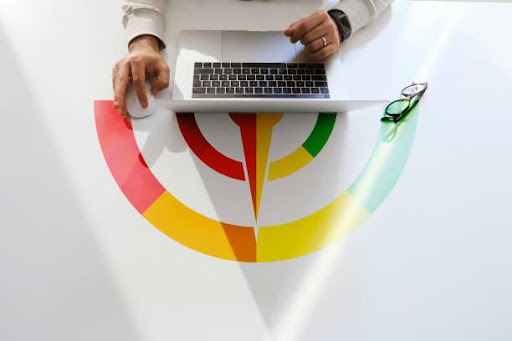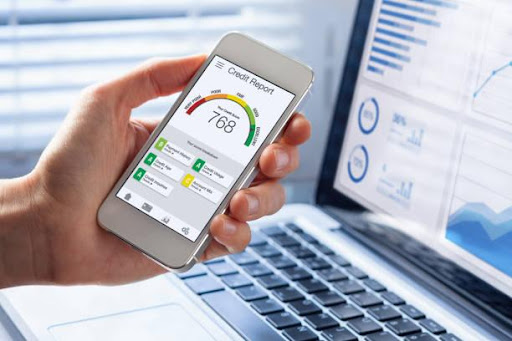
What is CIBIL Score? How It Can Be Calculated And Improved?

Do you know what a CIBIL score is and how to improve it? We can help
Taking a loan largely depends on your CIBIL score which acts as a parameter for judging your capacity to repay the loan in proper time without being a defaulter. Since every loan is tracked and kept into consideration while sanctioning future loans, the CIBIL score is a major factor resulting in the acceptance or rejection of your loan application.
CIBIL score is referred to as a 3-digit number that defines your creditworthiness. It ranges from 300 to 900 and is calculated based on your credit summaries, repayments, report, and ratings. The CIBIL or Credit Information Bureau India Limited is a credit agency authorized by the Reserve Bank of India which is also considered the most genuine and famous credit agency for calculating an individual’s creditworthiness in India.
What are the different ranges of CIBIL scores?
Based on your creditworthiness, these are the following types of credit scores you will get:
The table is to be inserted here (Review Titles of the table)
| Rating Score | Meaning |
|---|---|
| NA or NH | Stands for Not Applicable and No History indicating you do not have any credit history. |
| -1 | Indicates a credit history of <6 Months and a better and more descriptive history is required to get a loan |
| 300 – 619 | Indicates a poor record of repaying loans on time and the person should work on improving their score |
| 620 – 659 | Indicates an average record of creditworthiness and the chances of approval of a loan are weak |
| 660 – 719 | This scoring range is considered to be good and the chances of getting approval are higher on the latter end |
| 729 – 749 | Indicates a great credit record and the loan might get approved |
| 750 – 900 | Indicates an excellent track record of creditworthiness and the loan will get granted with this score |
What makes up a CIBIL Score?
Here are certain factors that contribute to the weight of your credit score which are as follows:
|
Payment History (Timely Payment of Your Credit Dues) |
30% |
|---|---|
|
Credit Exposure (Potential Loss to the lending entity if individual defaults payment) |
25% |
|
Credit Type & Duration |
25% |
|
Misc. Factors |
20% |
So, if you are looking to maintain a good CIBIL Score you must consider the above factors seriously.
Perks of a high CIBIL score
The perks of having a good CIBIL score are endless, here are some of them:
- Easy approval for personal loans: Having a high CIBIL score increases your creditworthiness. It increases the chances of your loans getting approved easily.
- Best interest rates: People with a good CIBIL report do not have to worry about high-interest rates, as they can negotiate with lenders on getting affordable interest rates. Various banks offer the best interest rates and credit options based on creditworthiness.
- Higher Loan Amounts: with a good CIBIL score, there is a 90% chance of your loan application getting approved without much hassle.
- Longer Tenure: Getting a longer tenure loan can be quite difficult but if you have a good CIBIL score you may be granted a longer tenure loan with ease.
- Get Access to Niche or Premium Credit Cards: Credit cards are quite common these days and if you are the one who has a premium credit card then you may get better interest rates, great facilities, discounts, and cashback options.
- Pre-Approved Loans: Looking to get a loan without waiting unnecessarily? Pre-Approved loans are those kinds of loans where you don’t need to worry about waiting for a longer duration to get your loan approved. If you have a higher CIBIL Score, you may get a loan in a shorter amount of time without much documentation being required.
Tips to Improve Your CIBIL Score
Looking to improve your CIBIL score? Here are some of the tips you should follow:
- Pay your EMI installments on time: Missing out on your EMI installments can affect your CIBIL score unpleasantly. To avoid this, ensure to pay all your EMI installments within the speculated time. You can even make use of NACH or automated debits to ensure that you don’t need to worry about paying it manually.
- Repay your outstanding debts: If you are wondering why you have a poor CIBIL score, it may probably be due to your old unsettled debts. Try to repay your previous debts before applying for a new loan as it helps you to obtain a higher score.
- Do not forget about your credit card bills: Always try to pay your credit card bills on time to maintain a good score. Late payments cast a negative impact on your score and may degrade it drastically. You may even choose to pay the minimum due fee.
- Dormant credit cards are a big No: If you own a credit card you no longer use, cancel it immediately. Keeping hold of unused credit cards would affect your score negatively.

- Never apply for many loans at the same time: It is always advisable to apply for a single loan at a time. Else, if you apply for multiple loans at the same time, your score ends up going down.
- Keep a track of your CIBIL score: Have a look at your score, once every six months to keep a good record of it. Sometimes the report comes with minor errors and inconsistencies. So, keeping it under supervision will help you maintain it effectively.
Conclusion
Getting a loan or credit is everyone’s need and they may require it at any point in their life. As financial systems are getting modernized, it is no longer a hassle to get a loan but the factors and benefits that are offered to you depend on your CIBIL Score. So, whenever you take a loan remember the best practices mentioned in this blog to improve and maintain your CIBIL score.
















